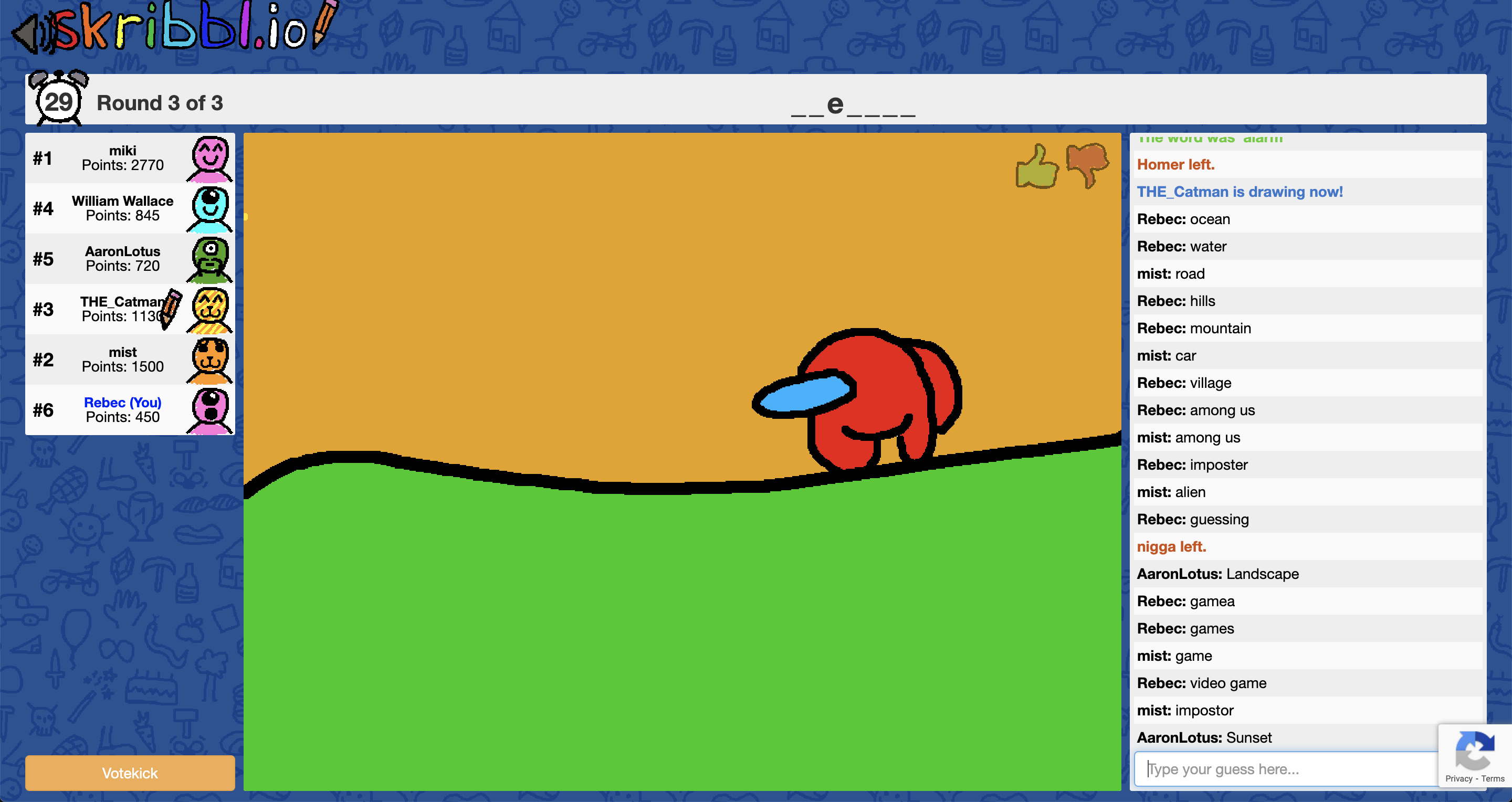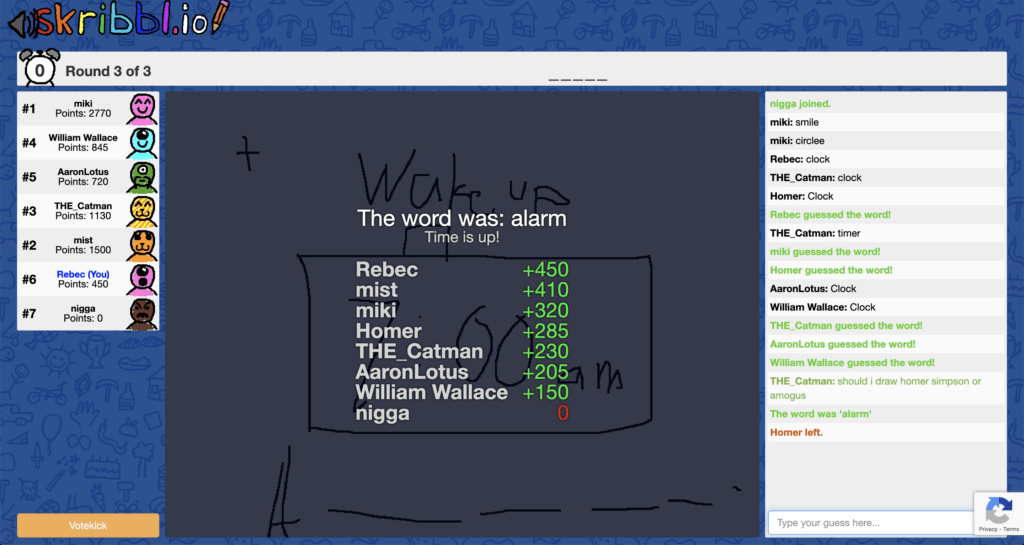
I played skribbl.io. According to https://www.crazygames.com/game/skribblio, the creator is “ticedev.” The platform I used is https://skribbl.io/ online, so the boundary of the game is the computer screen in the program. From game messaging, it seems that the target audience is 13+.
There are many important formal elements to the game. There are generally 6-8 players in each room. There were 6, 7, 8, and 3 players in the games I played.
There are two objectives, depending players’ roles. Each round, as the drawer, the objective is to get points by drawing something so as many people as possible can guess what the word is before the timer finishes; the drawer gets more points if more people guess correctly. As a guesser, the objective is to get points by deducing from the drawing what the word is as fast as possible before the timer runs out. The outcomes are non-zero sum since everyone can get points, but guessing correctly more quickly is rewarded with more points. At the end of the rounds, the person with the most points wins.

The game can be thought of as multilateral competition, since players are trying to guess the word as soon as possible for more points. The only caveat is that the drawer for each round is not competing against guessers. Players can take several actions. The drawer can select a word, and then draw their depiction of the word. They have pens available to them. Guessers can type words into the chat to guess the word, or to chat with others.
Something interesting the game does with player relationships and objectives is that in each round, the drawer wants other guessers to do well, but only when that player is in the drawing role. For example, as a drawer, I want everyone to guess my word, because I get more points; however, as a guesser, I don’t want everyone to guess the word, because then I have less chance to win the game. I find it interesting that the players’ objectives change depending on if they are the drawer or not.
One important rule to note is that once a player guesses the word, they will still be able to physically type the word in the chat, but the game will block people who haven’t guessed the word yet from seeing it. There is also an implicit/house rule that the drawer should not just spell the word, because this makes the game less fun.
It seems like this game is aiming for three types of fun – challenge, fellowship, and expression. The challenge and expression types of fun are met well. The mechanics of coming up with effective ways to express a word through drawings and trying to guess a word quickly based on someone else’s drawing make the game challenging. Additionally, the drawing aspect helps provide the expression type of fun. I think the game also tried to incorporate fellowship by providing a chat box, but I did not use this chat to socialize, since I was focused on either drawing or guessing. Thus, I do not think the game met its goal of providing the fellowship type of fun.
One main element that made the game compelling is that each player switches between being a drawer and guesser. As a drawer, a player’s objective is to have players correctly guess the word, but as a guesser, a player’s objective is to guess correctly and quickly and hope others do not guess correctly or quickly. Consequently, this change of objective renders skribbl.io to be a fun game.
The game works, because the objectives are easily understandable, and the concept of gaining points for correct answers is also intuitive. The game is also easy to play because it is digital, so keeping track of answers and points is easy. Although this game works well, it could be improved by implementing some way to enforce the “no drawing the word” rule. This way, players do not have to rely on participants’ goodwill to ensure the drawer does not just spell the word.
Players get somewhat vulnerable in this game; when the drawer draws, they are expressing their way of thinking through drawing. They are also being vulnerable in the sense that they are showing their drawing skill level.
This game differentiates itself from other games in its genre by focusing on its drawing and guessing aspect, and by changing players’ objectives through rotating roles (drawer and guesser). Other games in its genre such as Cards Against Humanity do not focus on drawing or guessing, and they do not switch players’ objectives as drastically based on their role. Players’ objectives change in skribbl.io, making it better than others in its genre, because changing players’ objectives keeps players engaged and makes the game interesting and dynamic.


